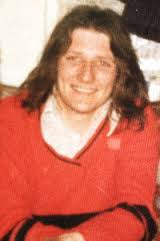EXCLUSIVE: A proposal to rename a Paris street after former Prime Minister Margaret Thatcher has driven a wedge between politicians in the French capital.
For Belfast Daily can reveal that one opponent of the idea has suggested that dead IRA hunger striker Bobby Sands should be honoured instead.
The proposal to honour the “Iron Lady”, who regularly jousted with French leaders like President Francois Mitterand whether they were from the left or the right of politics, came from a member of the centre-right Union for a Popular Movement (UMP).
Following the announcement of Baroness Thatcher‘s death on Monday, UMP councillor Jerome Dubus said he would submit a proposal for a street or square to be named after her.
He said it would be as a “a small gesture for a great lady”.
However his proposal drew contempt from leftist politicians in the chamber.
The leader of the Communist group in the city council, Ian Brossat, declared that Thatcher‘s “ultra-liberalism” had an “appalling impact on the state and the working class”.
Brossat said his group would submit a counterproposal – to name a street after Sands.
He said: “Bobby Sands died for defending the right of people to self-determination”.
Paris would not be the first French town to name a street of Sands. One already exist in Nantes and Saint Etienne to name but a few.
Sands was the first of 10 IRA prisoners, who died on hunger strike in Belfast in 1981 over Thatcher‘s refusal to grant political status to republican inmates.
During the course of his hunger strike, Sands was elected to the House of Commons.
A Socialist Party councillor had yet another idea. “Dumbfounded” by the proposal for a Thatcher street, Christophe Gerard tweeted: “I will present a wish for a Shakespeare street.”
The proposals are expected to be debated at the next session of the Paris council on April 22.
The 1981 Irish hunger strike started with Sands refusing food on 1 March 1981.
Sands decided that other prisoners should join the strike at staggered intervals in order to maximise publicity with prisoners steadily deteriorating successively over several months.
The hunger strike centred on five demands:
1. the right not to wear a prison uniform;
2. the right not to do prison work;
3. the right of free association with other prisoners, and to organise educational and recreational pursuits;
4. the right to one visit, one letter and one parcel per week;
5. full restoration of remission lost through the protest.[27]
The significance of the hunger strike was the prisoners’ aim of being declared political prisoners as opposed to criminals.
Bobby Sands died on 5 May 1981 in Maze prison hospital after 66 days of hunger-striking, aged 27.
The original pathologist’s report recorded Sands’ and the other hunger strikers’ causes of death as “self-imposed starvation”, later amended to simply “starvation” after protests from the dead strikers’ families.
The coroner recorded verdicts of “starvation, self-imposed”.
The announcement of Sands’ death prompted several days of rioting in nationalist areas of Northern Ireland.
A milk deliverer, Eric Guiney, and his son, Desmond, died as a result of injuries sustained when their milk float crashed after being stoned by rioters in a predominantly nationalist area of north Belfast.
Over 100,000 people lined the route of Sands’ funeral.
Sands was an MP 25 days but never took his seat or the oath.
In response to a question in the House of Commons on 5 May 1981, British Prime Minister Margaret Thatcher said, “Mr. Sands was a convicted criminal.

Crowds gather on Falls Road as a cavalcade of cars brings west Belfast to a standstill on Tuesday night
“He chose to take his own life. It was a choice that his organisation did not allow to many of its victims”.
Following Baroness Thatcher’s death this week, republicans have taken to the streets to ‘celebrate’ her passing.
‘Thatcher Is Dead’ street parties were organised in north and west Belfast using social networking site.
Unionist politicians have branded the street celebrations as “ghoulish” and “depraved”.






Pingback: THATCHER STREET OR BOBBY SANDS STREET ? PARIS POLITICIANS DIVIDED ! | seachranaidhe1